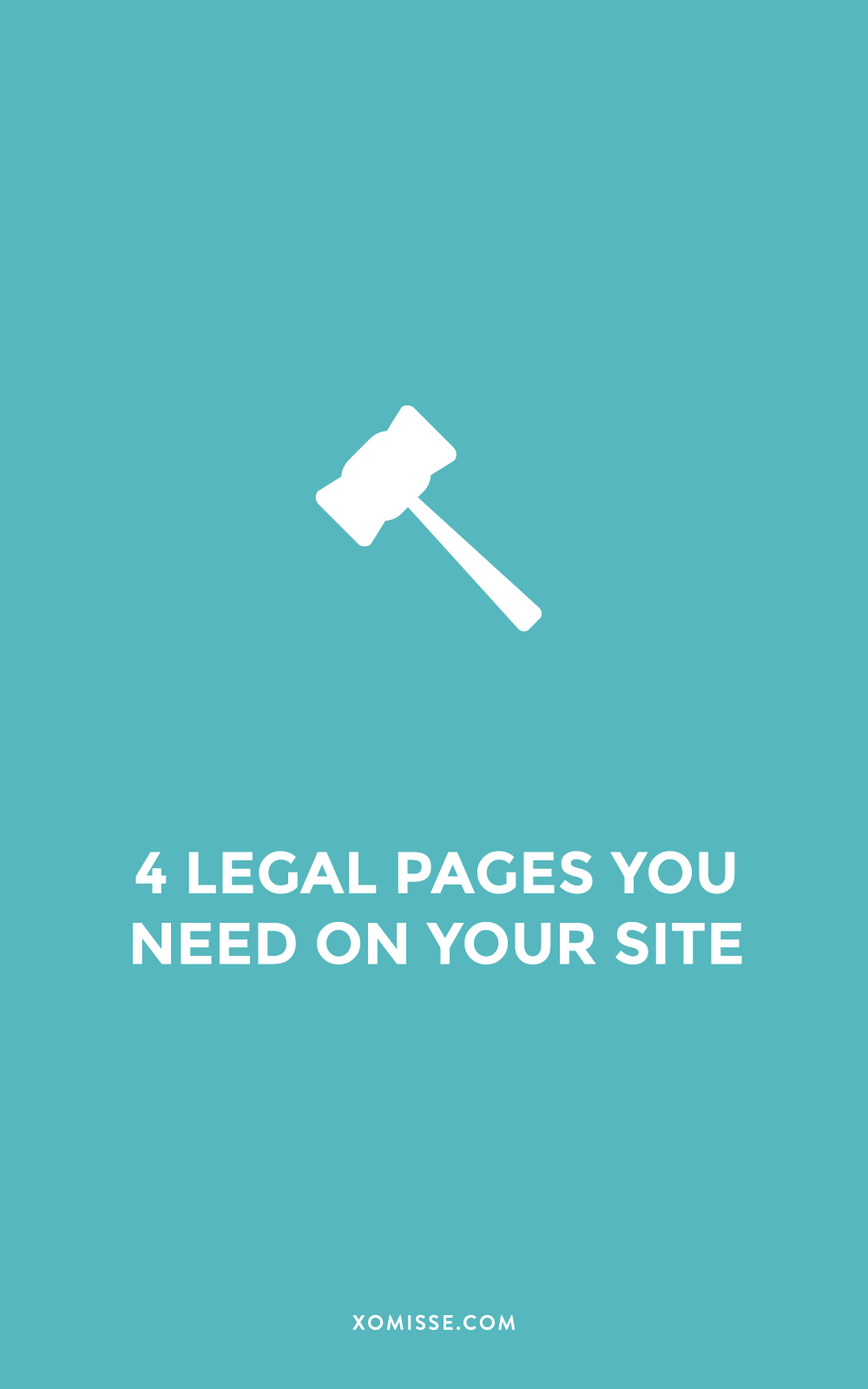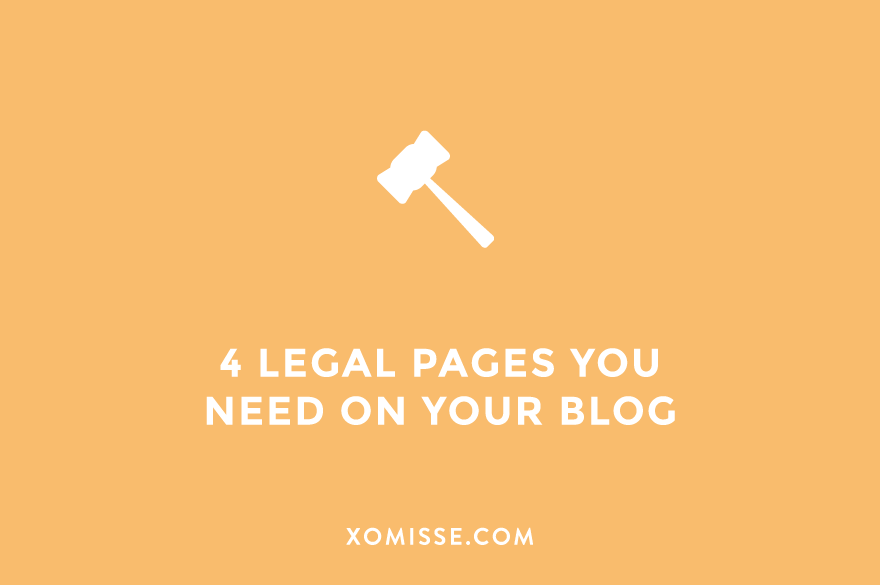One of the great things about the internet is the ability for anyone to start a blog or website. And while it is relatively easy to get yourself online, there are certain rules that you have to research and legal requirements that you have to follow. One of those things is your site’s legal pages.
To make sure you are blogging legally, the basic requirement is to have these fours pages:
- Privacy Policy
- Disclosure
- Disclaimer
- Terms and Conditions
If you don’t have these on your site, this post should help you get started. These pages not only enhance the credibility of a site, but can help protect you during your blogging journey.
And just so I’m setting a good example, here is a quick disclaimer about the advice in this email…
Disclaimer: I am not a lawyer, this information is based on personal experience and learnings. It is for informational and educational purposes only, and does not constitute legal advice. If you have specific questions, be sure to consult a qualified legal professional. This post may contain affiliate links, which means we may receive a commission, at no cost to you, if you make a purchase through a link. These links will be clearly marked.

Now that’s covered, let’s take a look at each of those pages!
1. Privacy Policy
A privacy policy outlines the usage and storage of 1) cookies on your user’s computers and 2) user’s personal data under the GDPR.
The main purpose of a privacy policy is to inform your site visitors what personal information you are collecting from them and how you are going to use that information.
It covers children’s privacy, personal data, cookies, email marketing, third-party and other regional requirements (such as those from the EU’s GDPR). If your site collects any user information or uses cookies to enhance the user experience, you need to have this policy on your site.
2. Disclosure
A disclosure is where you outline all the necessary information to your visitors regarding products and/or services so that they can make a well-informed decisions. This includes any sponsorship, ambassador or affiliate relationships, financial rewards or commissions that you will receive and other compensations.
While you may have a disclosure statement on each post, you should also have a more detailed disclosure page that you link to which covers everything in detail.
3. Disclaimer
The main purpose of a disclaimer is to protect you from lawsuits. It allows you disclaim or deny liability for the content you publish on your blog.
You should tailor your disclaimer to your specific niche. For example mine states that my website is “an educational and informational resource” and that I “cannot guarantee any particular results” whereas a fitness blogger may include a disclaimer that information shouldn’t be construed as medical or health advice.
4. Terms and Conditions (can also be Terms of Service or Terms of Use)
This explains the general rules that applies to your visitors, customers and all other users as to what is permitted and prohibited. It can cover intellectual property, copyright, refund/exchange policies and termination rights. You can also incorporate your Privacy Policy and Disclaimer.
It serves as a legal contract between you and the visitors to your site. This can protect you from legal liability and help resolve any future disputes.
How to create your legal pages
If you need help crafting the perfect legal pages, there are a number of template bundles online that you can use. I like the resources from The Contract Shop [affiliate link] and Small Business Bodyguard [affiliate link], which is where I purchased mine. Of course if you have a lawyer, consult them about your legal pages. Once you’ve created them, link to your legal pages in the footer of your site.

One response to “4 legal pages you NEED to have on your blog or website”
Thanks for sharing, very helpful